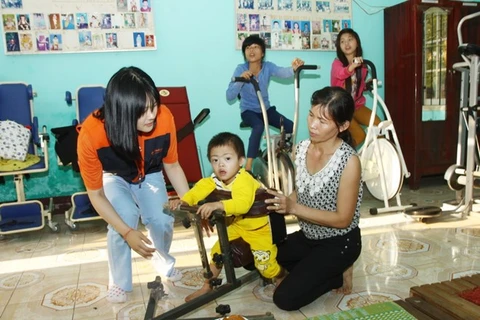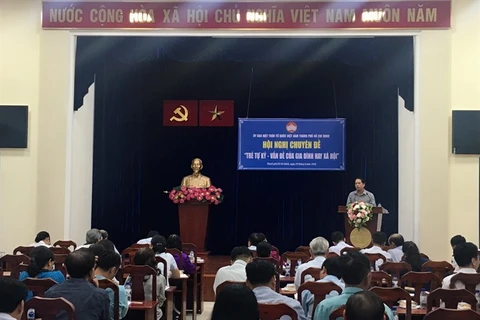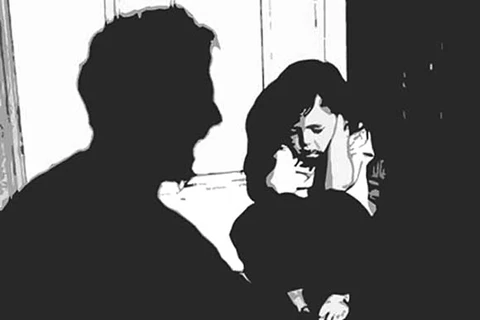 Handicapped children receive treatment at Hanoi Orthopedic and Rehabilitation Hospital (Source: VNA)
Handicapped children receive treatment at Hanoi Orthopedic and Rehabilitation Hospital (Source: VNA) Hanoi (VNS/VNA) - Handicapped Vietnamese children face obstacles to access education, leaving the majority of them with a low level of education and few job opportunities, heard a recent conference in Hanoi.
Disabled students also struggle to access healthcare, vocational training and consultations on job searching, legal assistance and recreational activities.
Improving the educational environment for disabled children and adolescents, the conference’s theme, is a necessity to help them better integrate into society, educational officials and experts at the event agreed.
Pham Xuan Tien, Director of the Hanoi Department of Education and Training, said many disabled students do not have certificates of disability, which hinders them from assessing social protection and educational assistance.
Because many families do not want to let others know their child is disabled, they refuse to register them as disabled, he said.
Another difficulty is that most schools that teach both non-disabled and disabled students do not have learning equipment for the disabled, he said.
Duong Thi Van, Director of the Centre of Disabled Integration Consultation and Assistance, said upgrading school facilities plays a key role in helping disabled children integrate into the general educational environment.
Between 2017 and 2019, the centre has been working with Angels’ Haven to implement a project aimed at improving the educational environment for handicapped children and adolescents in Hanoi, sponsored by the Korea International Cooperation Agency (KOICA).
Nearly 350 people including disabled students, their parents and teachers of Binh Minh and Thanh Tri primary schools benefit from the project.
The project has equipped these schools with projectors, computers, air-conditioners and other teaching equipment. School toilets have been upgraded and more ramps and handrails have been installed to assist handicapped students.
Van said disabled children lack skills to live independently, while teachers and parents lack knowledge and skills on how to teach them. The project has trained parents and teachers in these skills.
Sharing experience from the Republic of Korea (RoK), Professor Kim Eun Sook, head of the RoK’s National Special Education Institute, said the RoK has a special education law for the handicapped in which education is compulsory for those aged 3 to 17. Education is free for disabled newborns and babies under three years old.
The law also sets a standard for special classes for disabled students in which each teacher is responsible for four students.
Van proposed the engagement and of civil society organisations, research institutes, schools, business sector and international non-governmental organisations in assisting handicapped children and adolescents access education.
The collaboration would also effectively use resources mobilised for the work, she said.-VNS/VNA
VNA
























